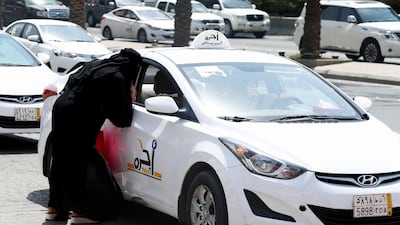The move to allow Saudi women to drive will reduce the number of accidents in a country with one of the worst car-crash mortality rates, its interior minister said on Thursday.
King Salman announced on Tuesday that the ban will be lifted in June 2018.
Saudi Arabia is the only remaining country in the world to bar women from driving. The decree has issued a ministerial committee to deliberate the measures needed for the implementation of the law.
Prince Abdulaziz bin Saud, the interior minister who took over from, Sheikh Mohammed bin Nayef, his uncle and former Crown Prince in June, said security forces were ready to apply traffic laws to men and women, though he did not mention if women would be recruited as traffic police.
"Women driving cars will transform traffic safety into a pedagogical practice which will reduce human and economic losses caused by accidents," he said on the ministry's Twitter feed.
_____________________
Read more:
Saudi women overjoyed to be hitting the road soon
After years of gradual reform, lifting Saudi driving ban sends powerful signal to conservatives
Saudi decision to allow women to drive welcomed
____________________
Around 20 Saudis die each day in traffic accidents. Poor governance has contributed to Saudi Arabia's woeful record in road safety, analysts say, and the government is aiming to reduce the number of deaths by a quarter as part of its ambitious Vision 2030 reform programme.
While Saudi women have generally praised the lifting of the driving ban, some men expressed concern it would dramatically increase the number of cars on already crowded Saudi roads.
A middle- to upper-class Saudi family typically has two vehicles, one driven by the man of the house and a second car in which a full-time chauffeur transports his wife and children.
The royal decree promises to change lifestyles for many of the 10 million women over the age of 20, including foreigners, who live in Saudi Arabia.
It may also help restore auto sales growth in a market dented by the economic fallout from weak oil prices. But because of conservative traditions, it may actually take years rather than months for women to become a major presence on the roads in some areas.
In a country where gender segregation has been enforced for decades, the decree means women will have regular contact with unrelated men, such as fellow drivers and traffic police.

